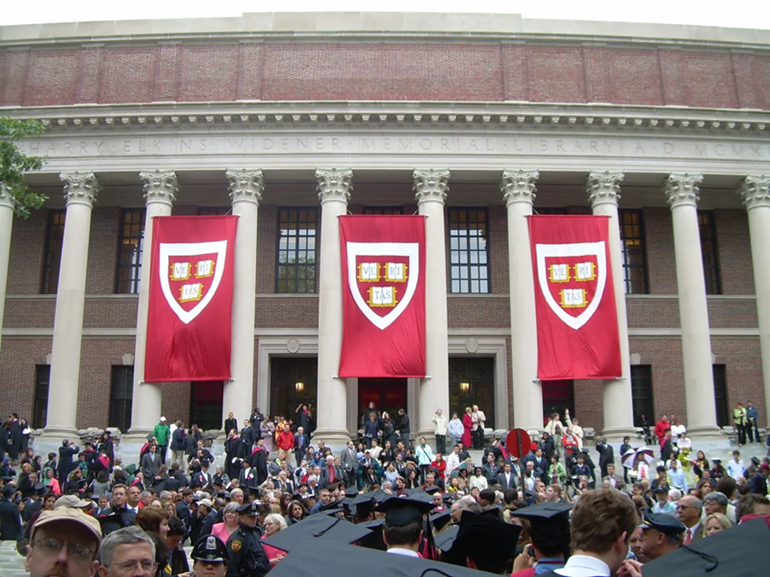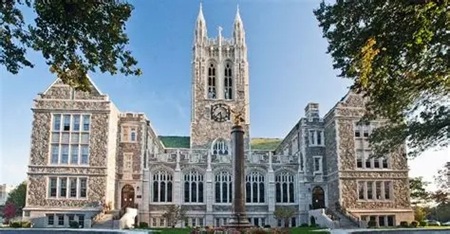Legacy admissions must go
Giving preference to applicants with family members who attended a school perpetuates inequity
by Lydia Edwards and Raul Fernandez
HARVARD UNIVERSITY has been battling admirably in the courts to preserve academic freedom and precious research dollars in the face of government overreach.

At the same time, it has bowed to pressure from the Trump administration to eliminate DEI programming—closing offices that support women, queer students, and students of color.
The inconsistency of those stands is as apparent as it is troubling. But it’s not the only issue where the university has backed policies that are hard to square.
Two years ago, Harvard defended race-based affirmative action in admissions before the Supreme Court in an effort to protect access for underrepresented students. But it continues to implement legacy preferences that limit access for those same students—even after the Supreme Court’s decision in SFFA v. Harvard led to a significant decline in Black student enrollment.
Harvard is not alone in clinging to an antiquated admissions policy.
In a state renowned for its world-class universities and at a time when programs that provide access for underrepresented students are under federal assault, it’s troubling that other Massachusetts colleges also still cling to legacy preferences—preferential treatment for applicants whose family previously attended the college.
Legacy preferences are a relic from the 1920s when elite institutions sought to exclude Jewish and other immigrant students. Today, some argue that the practice builds alumni tradition and a culture of financial giving, but it remains an affront to equity in education.
Harvard economist Raj Chetty and colleagues have demonstrated that legacy preferences contribute significantly to inequity in admissions. According to their research, legacy applicants are admitted at higher rates across all income levels, but the biggest advantage goes to wealthy families: high-income legacy students are five times more likely to be admitted to elite colleges than comparable non-legacy applicants.
At Harvard, the disparity is even more striking. Court records showed legacy applicants were nearly six times more likely to be admitted. A 2021 study found that 70 percent of legacies were white, and 75 percent of white students admitted as ALDCs—athletes, legacies, dean’s interest list (often donors), and children of faculty—would have been rejected if they were nonwhite.
Massachusetts institutions other than Harvard that still use legacy preferences include some of the most selective private colleges in the country—Boston College, Northeastern, Tufts, Smith, and Wellesley, among others.

Two groups advancing sharply differing answers to the housing affordability crisis say they will work to put questions on the 2026 state ballot.
These institutions are increasingly out of step with the national landscape. The share of four-year colleges using legacy preferences has dropped from 49 percent in 2015 to just 24 percent today. Here in Massachusetts, Amherst College and Boston University have recently ended the practice. But while virtually all our public colleges and universities have eliminated legacy preferences (Massachusetts Maritime Academy is an exception), 39 percent of our private institutions continue to use legacy admissions.
That’s why the Massachusetts Legislature must act. This session, the Joint Committee on Higher Education advanced S.2687, the Senate version of An Act Relative to Higher Education Admissions Policy, which bans legacy preferences. The bill ensures that admissions decisions are based on merit and potential—not inherited privilege.
This legislation isn’t controversial. Ending legacy preferences is supported widely by Democrats, Republicans, and three-quarters of Americans. Just one in eight admissions directors believe legacy status should play a role in college admissions. National groups like the NAACP and the American Association of University Professors (AAUP) favor ending legacy admissions. Nationwide, students across many college campuses have launched grassroots efforts to end the admission policy.
Here in Massachusetts, organizations such as the Massachusetts chapter of the ACLU and United Auto Workers Region 9A support the bill. The Harvard Crimson editorial board, the Harvard Graduate Students Union, and even former Harvard presidents Lawrence Summers and Derek Bok have publicly called for an end to legacy admissions.
Other states have already taken action. Colorado became the first to ban legacy admissions at public universities in 2021, followed by Illinois and Virginia. California and Maryland have gone further, banning the practice at both public and private colleges. It’s time for Massachusetts to join them.
Legacy preferences have no place in a modern, equitable education system. Our colleges and universities should be engines of opportunity, not gatekeepers of privilege. At a time when the federal government is targeting diversity and inclusion efforts, Massachusetts must lead by banning this discriminatory, outdated practice once and for all.

Lydia Edwards is Senate chair of the Joint Committee on Judiciary and the Senate lead sponsor of legislation to end legacy preferences. Raul Fernandez is a senior lecturer in educational leadership & policy studies at Boston University’s Wheelock College of Education & Human Development.
CommonWealth Voices is sponsored by The Boston Foundation.
The Boston Foundation is deeply committed to civic leadership, and essential to our work is the exchange of informed opinions. We are proud to partner on a platform that engages such a broad range of demographic and ideological viewpoints
